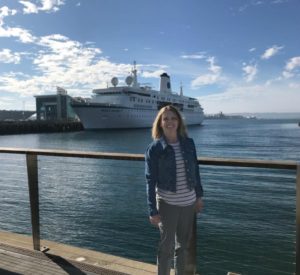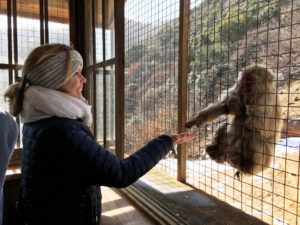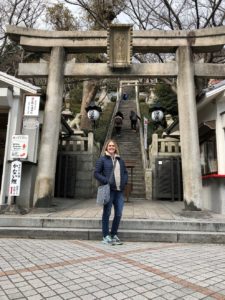Colorado State University is full of opportunities to see the world and travel while studying, but spending an entire semester on a ship is one of the more distinctive options available to students.
The Semester at Sea program offers students from the U.S. and around the globe the opportunity to explore at least 10 countries on four continents, all while taking classes aboard the ship. CSU serves as Semester at Sea’s academic partner, which allows for unique opportunities for CSU students and faculty.
Melissa Wdowik, an assistant professor in Food Science and Human Nutrition and director of the Kendall Reagan Nutrition Center, is teaching on the ship during spring 2018. She described the course offerings as “almost as diverse as CSU’s physical campus.”
A campus to cross the ocean

Students and staff participating in Semester at Sea reside on the World Odyssey passenger ship.
With room for about 600 undergraduates and their professors, the ship is a full floating campus during the 100-day voyage. While the ship is crossing oceans, class is in session for the variety of subjects taught on board.
However, each time the ship arrives in a port there are no classes scheduled for those two to seven days, except hands-on field experiences led by faculty that relate directly to what students are learning in the classroom.
Food Science and Human Nutrition on board
While on the ship, Wdowik will be teaching three courses: Survey of Human Nutrition, Nutrition & Society, and Population & Food.
In Survey of Human Nutrition, the class will explore nutrition concepts, dietary needs for a healthy body, and nutrients found in various foods. These issues will be viewed through a global perspective that highlights how protein, carbohydrates, and fats are consumed around the world, and consider how malnutrition, diabetes, and obesity are related to these other issues.

In Nutrition and Society, Wdowik will discuss with her students how food choices are connected to the culture of an individual. This culture includes the individual’s environment, the politics of his or her situation, and the marketing in the area where he or she lives, as well as factors like religion and family background. Each country that the ship visits will be a new discussion for the class as they consider these topics.
In Population and Food, students consider the growing population and rising food insecurity of our planet. The class studies food systems, production practices, and food waste as they relate to sustainability and agriculture. The class focuses on the global implications of these themes.
“I want these students to have global and cross-cultural perspectives for diet and food production,” explained Wdowik. “As they progress through this semester, their eyes should open to the problems around the world and how things like poverty or drought can impact all of us.”
Seeing the world

The World Odyssey departed from San Diego on Jan. 5, and will dock in 15 cities in Hawaii, Japan, China, Vietnam, Myanmar (Burma), India, Mauritius, South Africa, Ghana, and Morocco before students disembark in Hamburg, Germany, this April.
Learn more about upcoming voyages with Semester at Sea, as well as financial aid information, at www.semesteratsea.org. The CSU Education Abroad office is also an excellent resource for interested students and has information on Semester at Sea financial aid designated specifically for CSU students.
The Department of Food Science and Human Nutrition is part of CSU’s College of Health and Human Sciences